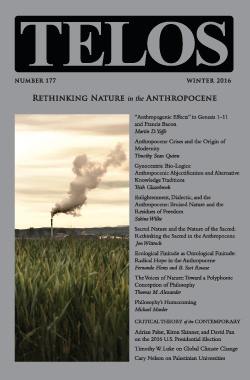By Telos Press · Friday, February 10, 2017 Constitutional Theory as Cultural Problem:
Global Perspectives
January 19–21, 2018
New York, NY
The International Center for Critical Theory and the Telos-Paul Piccone Institute will jointly host a conference entitled “Constitutional Theory as Cultural Problem: Global Perspectives,” to be held at New York University, New York, from January 19–21, 2018.
The challenges faced by the liberal democratic model in the 21st century have made constitutional theory into an urgent topic of global concern. Both the second Iraq War and the revolutions of the Arab Spring frustrated hopes of an easy trajectory toward liberal democratic constitutional orders. If there was the hope that liberation would mean the establishment of liberal democracy, the result has been that emancipation from tyranny does not naturally lead in a particular political direction. Such a conclusion presents fundamental problems for a constitutional theory that is built around a liberal democratic model.
Continue reading →
By Lukas Szrot · Tuesday, February 7, 2017 During his 2004 presidential campaign, John Kerry stated, “We have to get back to the place we were, where terrorists are not the focus of our lives, but they’re a nuisance.” Though this statement was widely lampooned on right-leaning American media outlets, it is worth examining: swimming pools, and choking on one’s food, are more deadly, all things being equal, than terrorism. Yet terrorism produces a “conceptual helplessness,” in which, “We seem to be left with no good choices. To call what happened on September 11 evil appeared to join forces with those whose simple, demonic conceptions of evil often deliberately obscure more insidious forms of it. Not to call the murders evil appeared to relativize them, to engage in forms of calculation that make them understandable—and risked a first step toward making them justifiable.”
Continue reading →
By Jens-Martin Eriksen · Thursday, February 2, 2017 Ten characteristics of the patterns of ethnic conflict in Europe—the way they are reflected in media and culture. They serve as the key to conceptual understanding of the nature of confrontation, aggression in communication in the public sphere in Europe at present, and erosion of democratic values
Continue reading →
By Flaminia Incecchi · Tuesday, January 31, 2017 In “A Tragic Desire: Rousseau and the Modern Democratic Project,” Alice Ormiston brings to the fore a figure often neglected in contemporary political theory and that, as the title foreshadows, is Jean-Jacques Rousseau. First, Ormiston—animated by the task of the intellectual historian—traces to Rousseau the discovery of a fundamental clash at the heart of the modern subject, which is that between nature and abstract reason. Such tension, Ormiston claims, has influenced, or is present in, subsequent thinkers like Kant, Hegel, Marx, Nietzsche, and Freud. Rousseau identifies the clash between nature and reason, and eyeing man’s primitive condition with nostalgia and viewing his modern condition with contempt, he is seeking to resolve such contention in his works.
Continue reading →
By Aidin Keikhaee · Friday, January 6, 2017 In this essay I attempt to sketch out the possibility of a response to the problem of the relation between ethics and politics in Emmanuel Levinas’s philosophy. Levinas’s ethics as first philosophy is revolutionary, and promising, but it leads to a gap between ethics and politics. This is a genuine problem, since depending on how one problematizes this gap and responds to it, one may end up with different, even opposing, views of Levinas’s thought, ranging from the right side of the political spectrum to its very left. In order to respond to this problem, I examine the possibility of a constructive dialogue between Levinas’s ethics and Adorno’s negative dialectics. In particular, I approach the relation between ethics and politics in Levinas from the standpoint of the question of history.
Continue reading →
By Russell A. Berman · Wednesday, December 21, 2016 In addition to its main focus on nature and the Anthropocene, Telos 177 (Winter 2016) features a special section of topical writing, introduced here by Russell A. Berman, that continues our ongoing commitment to setting forth a critical theory of the contemporary. Telos 177 is now available for purchase in our store.
 After a rancorous and ugly presidential campaign, in which vitriol and name-calling replaced discussion and policy, one moment stands out for its dignity: President Obama’s grace and generosity when he welcomed the president-elect to the White House. Above the fray and with a Lincolnian refusal of malice, he modeled a possibility of reconciliation and healing, as if citizens might genuinely respect each other, despite profound differences. That utopia will likely remain elusive, but the president’s bearing provides a lesson in civic virtue. Democracy can be coarse. He showed how it can be better. That legacy will be important. After a rancorous and ugly presidential campaign, in which vitriol and name-calling replaced discussion and policy, one moment stands out for its dignity: President Obama’s grace and generosity when he welcomed the president-elect to the White House. Above the fray and with a Lincolnian refusal of malice, he modeled a possibility of reconciliation and healing, as if citizens might genuinely respect each other, despite profound differences. That utopia will likely remain elusive, but the president’s bearing provides a lesson in civic virtue. Democracy can be coarse. He showed how it can be better. That legacy will be important.
Continue reading →
|
|



